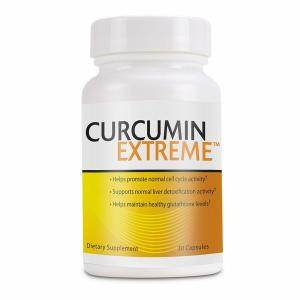 |
| The best way to help your body protect itself against Ebola (or any virus or bacteria) |
Work with your body's natural defenses
The only way to work with your body's natural defenses is to give it what it requires in order to function at optimal performance. Conventional medical wisdom claims that man-made remedies such as vaccines are superior to those provided by nature, but it doesn't take a scientist to understand that the toxic chemicals and preservatives injected into the body along with antigens is not a legitimate way to improve immunity.
To improve your immunity, you must improve your relationship with nature and the medicine it provides, which has been proven to keep people healthy for thousands of years. In this case, a focus on healing foods and herbs that have strong antibacterial and antiviral properties is of primary importance, along with improving immune system function and eliminating foods that suppress it.
Antibacterial foods, herbs, and solutions to begin consuming regularly
Even though Ebola is a virus, it only makes sense to start clearing out any harmful bacteria in your digestive system in order for your immune system to function properly. This will allow it to do its job more efficiently, which is a must have when dealing with more deadly infections such as Ebola.
Antibacterial foods and herbs to consider, include:
 |
| Curcumin Extreme |
Garlic
Onion
Turmeric (curcumin)
Ginger
Lemon
Cayenne
Peppermint
Cinnamon
Clove
Cranberry
Calendula
Echinacea
Oregon grape root
Goldenseal
Marshmallow root
Uva Ursi
Yarrow
Colloidal silver
Most of these foods and herbs can be used in many different ways in every day meal preparation, but the most potent way to receive their benefits in through tinctures, capsules, teas, essential oils, and freshly pressed juices. A few of them are antiviral as well (like ginger, garlic, cranberry, colloidal silver, and Echinacea).
Stock up on antiviral herbs
In the event that Ebola is found in your region, or you suspect you may have an infection, you may want to consider the following as part of your natural defense:
Una de Gato (Cat's Claw)
Pau D'Arco
Astragalus
Elderberry
Lemon balm
Licorice root
Olive leaf
Oregano oil
These proven virus fighters will provide another layer of protection to your overall immune support plan.
Consume immune strengthening foods, herbs, and nutrients
Along with these foods and herbs, it's also important to consider those things that help solidify a strong immune system, such as:
Adaptogenic herbs (reishi, siberian ginseng, astragalus, gynostemma, una de gato, pau d'arco)
Liver supporting herbs (milk thistle, dandelion root, yellow dock root, burdock root, artichoke, turmeric)
Vitamin C (camu camu, acerola cherry, guava, peppers, kale, oranges)
Vitamin D (sunlight and/or fermented cod liver oil)
Zinc (supplement or pumpkin seeds)
Probiotics (supplement or consider sauerkraut, coconut kefir, apple cider vinegar, and kombucha)
The foods, herbs, and ingestible nutrients listed will provide your immune system with exceptional benefits, and can be consumed in whole food, capsules, tinctures, and tea. Grounding is helpful as well.
Ditch foods and behaviors that suppress the immune system
Another very important factor to unleash your immune system is to stop consuming foods and engaging in behaviors that depress it. The biggest culprits in immune suppression are:
Sugar (especially refined)
 |
| Probiotics to create a healthy immune system |
Dairy
Corn, soy, and wheat (gluten)
Hydrogenated foods
Excess animal protein
Excess flour intake
Highly processed foods
Chronic stress
Excessive EMF exposure
Limited sunshine or vitamin D supplementation
Improve in all of these areas, and your immune system and energy will reciprocate nicely, both which help your body protect itself against Ebola (and any other viruses or bacteria).
As always, consult with a qualified herbal practitioner or naturopath to determine which herbs and solutions are best for your individual situation. At this time, there is no proven remedy for Ebola, but investing in your immune system and using nature's medicine quite possibly gives you the best route of action.
Learn all these details and more at the FREE online Pandemic Preparedness course at www.BioDefense.com
Sources:
http://www.healingthebody.ca
http://www.healingthebody.ca
http://biodefense.com
http://www.sustainablebabysteps.com
http://www.ncbi.nlm.nih.gov
http://www.ion.ac.uk
Learn more:http://www.naturalnews.com/047232_Ebola_natural_immunity_virus.html#ixzz3GKrqjDkm




